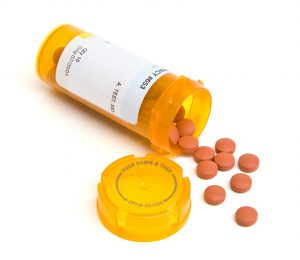Advisory body developed roadmap to address prevention, treatment and recovery
WILMINGTON, Del. – On Tuesday, Lieutenant Governor Bethany Hall-Long, along with members of the Behavioral Health Consortium, presented Governor Carney with their initial report, a “Three-Year Action Plan,” to confront addiction and mental illness across Delaware.
“I am proud to release this initial report to Governor Carney,” said Lieutenant Governor Bethany Hall-Long. “The members of the Behavioral Health Consortium have been meeting for over six months listening to members of the community tell their personal stories and experiences of how the addiction epidemic has affected them and gathering their feedback on how we can improve our behavioral health care system and better serve Delawareans. This report is an initial roadmap for the Governor and members of the General Assembly to address the challenges we face and start saving lives.”
Creation of the Behavioral Health Consortium was a recommendation of Governor Carney’s Action Plan for Delaware. Last August, the Governor signed Senate Bill 111, creating the advisory body of advocates, health officials, law enforcement, state leaders, and members of the community to develop an integrated plan addressing prevention, treatment and recovery for mental health, substance use, and co-occurring disorders. It has been meeting since October to develop both short and long term solutions to address behavioral health and the addiction epidemic in Delaware.
“Too many Delaware families are dealing with the effects of addiction and mental illness,” said Governor Carney. “This action plan gives us a path to follow, to directly confront many of the challenges facing Delaware families, to expand access to prevention and treatment services, and to reduce the stigma around mental illness and substance abuse. I asked Lieutenant Governor Hall-Long to lead this effort because she has the experience and leadership necessary to help us make real change. I look forward to reviewing this plan in more detail, and to talking to members of the General Assembly about a path forward. Thank you to the Lieutenant Governor, and all the advocates across our state for their leadership on this very important issue.”
Based on the data gathered by the Consortium, and from the voices of more than 600 Delawareans that participated in a community forum process, the report is divided into six main areas of action:
- Access and Treatment
- Changing Perceptions and Stigma
- Corrections and Law Enforcement
- Data and Policy
- Education and Prevention
- Family and Community Readiness
Each contains both immediate and longer term recommendations for action to improve the behavioral health care system in Delaware.
“Although the consortium already had a great deal of expertise among its members, the group still solicited a lot of public input that helped inform this first report,” said Representative David Bentz. “It’s also encouraging that this report includes a detailed action plan, which is something we can begin to enact almost immediately. This won’t be a report that sits on a shelf and collects dust – it’s going to get put good use right away, making a difference for residents facing mental health and substance abuse issues.”
“Thousands of families, advocates, medical professionals, and policymakers across the state have stood up and said that we need to meet the addiction crisis head-on,” said Senator Stephanie Hansen. “That’s an incredible resource, and the Behavioral Health Consortium’s focus has been keeping this train moving in the right direction. The Consortium’s final report is the product of months of work that provides a valuable North Star for Delaware as we combat this harrowing epidemic.
For more information on prevention, addiction, treatment and recovery, please visit HelpIsHereDE.com. Individuals who are suffering from addiction can also call DHSS’ 24/7 Crisis Hotline to be connected to treatment options. In New Castle County, call 800-652-2929, or Kent and Sussex Counties, call 800-345-6785.
Click here to view the Behavioral Health Consortium’s Three-Year Action Plan.
Click here to view the livestream from today’s event.
###
Related news:
Delaware Opioid Prescription Rates Falling Seven Months After New Regulations Enacted
In Response to Addiction Epidemic, DHSS Seeks Proposals to Implement Centers of Excellence Model to Improve State’s Substance Use System of Care
Delaware Steps Up Fight Against Addiction; Begins Work to Expand Mental Health Services
Governor Carney Signs Legislation Forming a Behavioral Health Consortium and Addiction Action Committee in Delaware
Governor Carney Signs Package of Legislation to Combat Addiction Crisis

